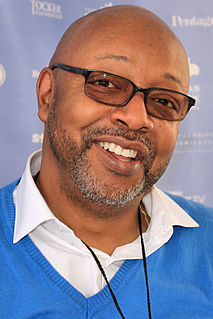A Quote by Virginia Gildersleeve
For more than twenty-five years my mind had been deeply troubled by the fact that these mechanical and scientific achievements ofman had outrun his intellectual and spiritual power. ...Throughout the Second World War this terrible problem hung in the back of my mind. As I write these words the problem and the danger are as threatening as ever. We hope our nation will survive, but in its effort to survive will it transform itself intellectually and spiritually into the image of the thing against which we fought?
Quote Topics
Achievements
Against
Back
Been
Danger
Deeply
Effort
Ever
Fact
Five
Five Years
Fought
Had
His
Hope
Hung
Image
Intellectual
Intellectually
Itself
Mechanical
Mind
More
Nation
Of My Mind
Our
Outrun
Power
Problem
Scientific
Second
Second World War
Spiritual
Spiritual Power
Spiritually
Survive
Terrible
Than
Thing
Threatening
Throughout
To Survive
Transform
Troubled
Twenty
Twenty-Five
War
Which
Will
Words
World
World War
Write
Years
Related Quotes
Something is amiss, deeply wrong, something is deeply wrong with the way we're living our lives collectively, with the way we are creating our collective experience on earth. And we are coming to the conclusion that the problem after all is not political, that the problem after all is not economic, that the problem after all cannot be solved with bombs or missiles or bullets, but that the problem in fact is spiritual, that the problem with the world today is as it has always been, a problem of our most basic beliefs. Without a doubt it`s a spiritual awakening and a spiritual revolution.
Many people correctly make the point that our only hope is to turn to God. For example, Charles Lindbergh, who said that in his young manhood he thought "science was more important than either man or God," and that "without a highly developed science modern man lacks the power to survive," . . . went to Germany after the war to see what Allied bombing had done to the Germans, who had been leaders in science. There, he says, "I learned that if his civilization is to continue, modern man must direct the material power of his science by the spiritual truths of his God."
Our scientific power has outrun our spiritual power. We have guided missiles and misguided men. Our hope for creative living lies in our ability to reestablish the spiritual needs of our lives in personal character and social justice. Without this spiritual and moral reawakening we shall destroy ourselves in the misuse of our own instruments.
Diversity is a survival factor for the community itself. A community of a hundred million species can survive anything short of total global catastrophe. Within that hundred million will be thousands that could survive a global temperature drop of twenty degrees—which would be a lot more devastating than it sounds. Within that hundred million will be thousands that could survive a global temperature rise of twenty degrees. But a community of a hundred species or a thousand species has almost no survival value at all.
He realized now that a lot of the problem had been his own mind, which was usually moving at a speed ten or twenty times that of his classmates. They had thought him strange, weird, or even suicidal, depending on the escapade in question, but maybe it had been a simple case of mental overdrive-if anything about being in constant mental overdrive was simple. Anyway, it was the sort of thing you got under control after a while-you got it under control or you found outlets for it.
Arthur Schlesinger, Jr., in a mordant protest written soon after the [1952] election, found the intellectual "in a situation he has not known for a generation." After twenty years of Democratic rule, during which the intellectual had been in the main understood and respected, business had come back into power, bringing with it "the vulgarization which has been the almost invariable consequence of business supremacy.
If we start worrying whether our nose is too big or too small, we should think, “What if I had no head? - now that would be a problem!” As long as we have life, we should rejoice. If everything doesn't go exactly as we'd like, we can accept it. If we contemplate impermanence deeply, patience and compassion will arise. We will hold less to the apparent truth of our experience, and the mind will become more flexible. Realizing that one day this body will be buried or burned, we will rejoice in every moment we have rather than make ourselves or others unhappy.
When you say that after World War I there was a pandemic that killed more people than the war itself, most will say: "Wait, are you kidding? I know World War I, but there was no World War 1.5, was there?" But people were traveling around after the war, and that meant the force of infection was much higher. And the problem is that the rate of travel back then was dramatically less than what we have nowadays.
The moment our discourse rises above the ground-line of familiar facts, and is inflamed with passion or exalted thought, it clothes itself in images. A man conversing in earnest, if he watch his intellectual processes, will find that always a material image, more or less luminous, arises in his mind, contemporaneous with every thought, which furnishes the vestment of the thought.... This imagery is spontaneous. It is the blending of experience with the present action of the mind. It is proper creation.
As we seek the Lord ever more diligently, we will surely find Him. We will see clearly that the Lord does not abandon His Church or His faithful Saints. Our eyes will be opened, and we will see Him open the windows of heaven and shower us with more of His light. We will find the spiritual strength to survive even during the darkest night.
It is said by Bush men and women that we fought (the Iraq War) to strike against terrorism - except that Iraq had no documented role in the Sept. 11 attacks. It is said that we fought from a moral objection to tyranny - except that we don't seem all that troubled by tyrants in nations that lack huge oil reserves. Everything is said except the truth: that we rushed into an unnecessary war on a half-baked mission. And that the repercussions of our hubris will shadow us for years.
Some attribute had departed from her, the permanence of which had been essential to keep her a woman. Such is frequently the fate, and such the stern development, of the feminine character and person, when the woman has encountered, and lived through, an experience of peculiar severity. If she be all tenderness, she will die. If she survive, the tenderness will either be crushed out of her, or—and the outward semblance is the same—crushed so deeply into her heart that it can never show itself more.
The problem facing humanity today is not a political problem; it's not a financial problem; it's not a military problem. It's obviously a spiritual problem. That is, it has to do with what we believe to be true about who we are, where we are, why we are where we are, and what are we doing on the Earth. What is the purpose of life itself? What we need right now are leaders or models, people who will stand up and not only help to write a cultural story, but help to model it in the way that they interact with each other.
You have not been mistaken in supposing my views and feeling to be in favor of the abolition of war. Of my dispos[i]tion to maintain peace until its condition shall be made less tolerable than that of war itself, the world has had proofs, and more, perhaps, than it has approved. I hope it is practicable, by improving the mind and morals of society, to lessen the dispos[i]tion to war; but of its abolition I despair.
If only you’d remember before ever you sit down to write that you’ve been a reader long before you were ever a writer. You simply fix that fact in your mind, then sit very still and ask yourself, as a reader, what piece of writing in all the world Buddy Glass would most want to read if he had his heart’s choice. The next step is terrible, but so simple I can hardly believe it as I write it. You just sit down shamelessly and write the thing yourself. I won’t even underline that. It’s too important to be underlined.


































